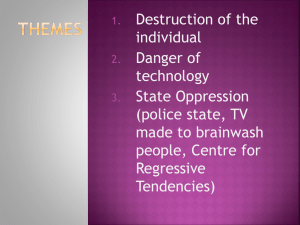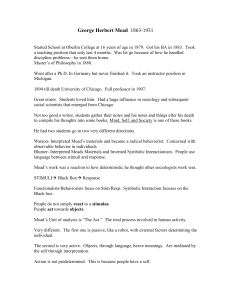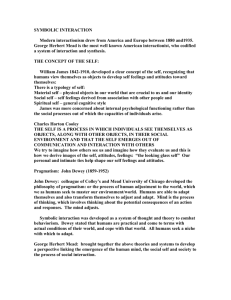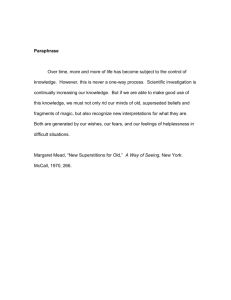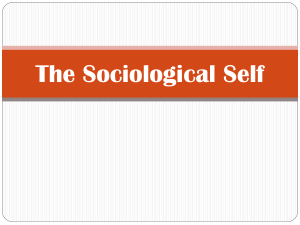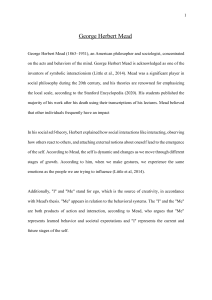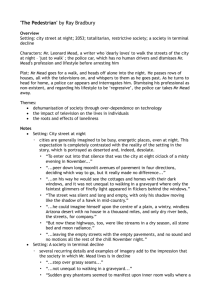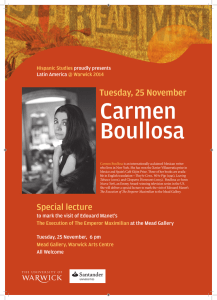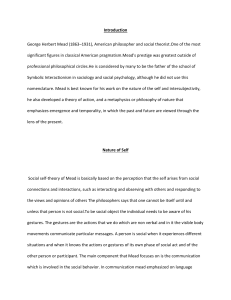George Herbert Mead powerpoint
advertisement
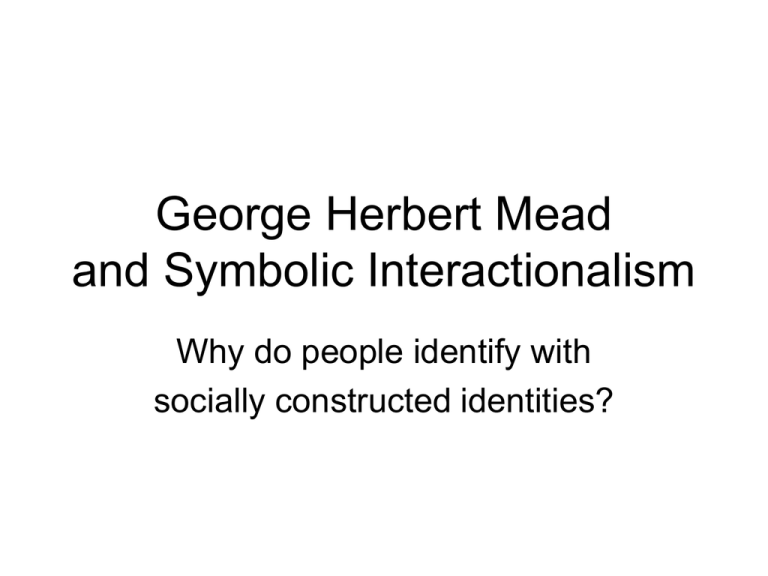
George Herbert Mead and Symbolic Interactionalism Why do people identify with socially constructed identities? George Herbert Mead, 1863-1931 • A philosopher and psychologist, studying with William James at Harvard and William Wundt, at Leipzig • Taught at the University of Chicago with John Dewey • Never published a book: his lectures were collected by his students and published after his death Pragmatic Philosophy There are four main tenets of pragmatism • First, to pragmatists true reality does not exist "out there" in the real world, but is actively created as we act in and toward the world. • Second, people remember and base their knowledge of the world on what has been useful to them and are likely to alter what no longer "works.” • Third, people define the social and physical "objects" they encounter in the world according to their use for them. • Lastly, if we want to understand people, we must base that understanding on what people actually do. Symbolic Interactionalism Three arguments of social interactionalism: • Human beings act towards things on the basis of the meanings those things have for them. • The meaning of those things is derived from, or arises out of, the social interaction that one has with one’s fellows. • These meanings are handled in, and modified through, an interpretive and self-reflective process used by the person in dealing with the things he or she encounters. We use meanings as instruments to guide and choose our actions. Play and Organized Games (a la Mead) • “The I” and “the me”: p. 145 (1, 2) • Roles in a game; actions are regulated; symbols are shared by participants, p. 150 (2) • Social groups are like games; “the generalized other,” p. 152 (2) • Crucial to the development of the self Mead has a Melanesian view of the self • The partible self: p. 146 (1) • Society is prior to self, p. 156 (1) Why do people vary? • Back to the conversation between the “I” and the “me”: p. 158 (1)
